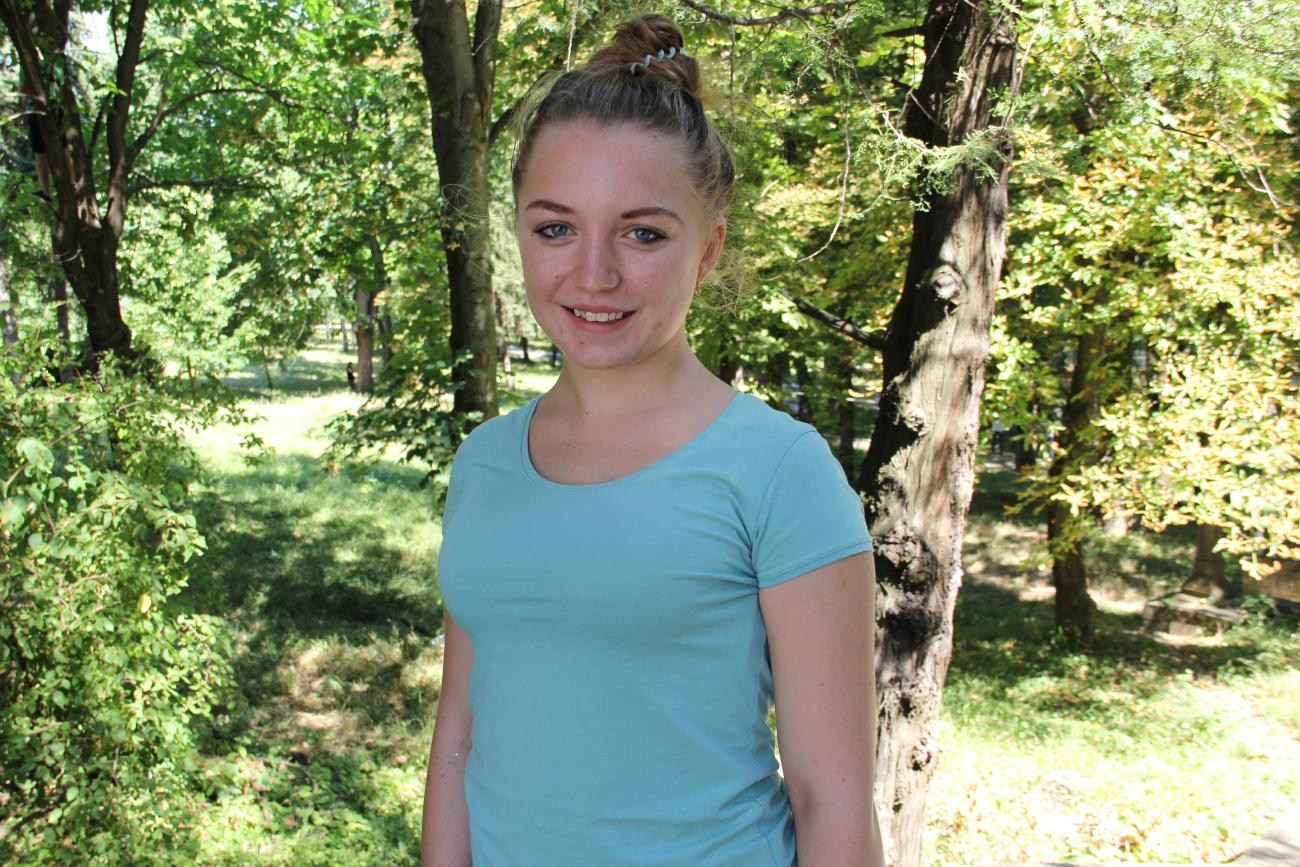Young volunteers take lead in sexuality education in Moldova

“The sexual and reproductive health issues have to be discussed more often with young people"
“The sexual and reproductive health issues have to be discussed more often with young people, since this would help them to avoid risky behaviors and to take informed decisions in the future”, says Doina, who is an 18 years old young volunteer at the Youth Friendly Health Centre from Calarasi town.
More than three years ago, Doina was motivated to become a volunteer at the Youth Friendly Health Centre by her mother who has been very supportive ever since.
Despite of her parents support, many of her school colleagues do not share Doina’s enthusiasm. Nonetheless, for the last three years, Doina visited young people in many schools in her hometown Calarasi and nearby villages, where she conducted information sessions on youth health, including risky behaviors and combating violence.
Vladlen, who is 17, is a volunteer at Youth Friendly Health Center from Orhei, but also an educator within the peer-to-peer education network Y-PEER Moldova, which is supported by UNFPA. He, unlike Doina, was advised to become a volunteer and to get involved in the community activities by his schoolteacher. “Although some of my colleagues have been skeptical at the beginning, many of them feel comfortable now to ask me questions about how to use a condom correctly, or how to avoid risky behaviors”, says Vladlen.
“In the last two years, since I’ve become a volunteer, I have visited, besides Orhei, 14 villages where I have organized peer-to-peer information sessions for young people in schools”, shares Vladlen his experience. He says that all the young people he had the chance to meet had said they needed information sessions on sexual and reproductive health.
Vladlen and Doina are the participants of the Summer Camp for the volunteers of the Youth Friendly Health Centers in Moldova on sexual and reproductive health, organized by “Health for Youth” NGO with UNFPA Moldova support. A total number of 160 volunteers from Youth Friendly Health Centers from 26 districts all over the country have participated in this years’ summer school. They learned how to communicate about the sexual and reproductive health with young people and how to equip them with necessary information for future responsible decisions regarding their health and life.
There are 37 Youth Friendly Health Centers in Moldova, one in every administrative district of the country. Instituted by the Ministry of Health, the Centers provide young people with counselling, information, sexual and reproductive health services, as well as other medical services. Besides the medical staff, every center has a team of volunteers who are conducting information sessions and other activities for young people. UNFPA Moldova provides support to Youth Friendly Health Centers in terms of developing the peer-to-peer educators’ network.
The activity of the Youth Friendly Health Centers volunteers is especially important in Moldova, where the sexual education is not part of the mandatory school curricula, despite the fact that the Law of the Republic of Moldova on Reproductive Health no.138 of 2012 foresees it. Moreover, the statistics show a real need for sexuality education in Moldova, since the adolescent pregnancies rates are two times higher than in European countries and the rate of the HIV incidence among young people has almost doubled in last 15 years.
Youth Friendly Health Centers and the peer-to-peer education network Y-PEER Moldova often join efforts, as in the case of Orhei or Drochia, in providing information and raising awareness of young people about their sexual and reproductive health and existing youth friendly medical services.
Despite of the efforts of Youth Friendly Health Centers and Y-PEER Moldova voluneers, they are not able to reach to every single young person in Moldova. Therefore, the young boys and girls in Moldova have to have access to age-appropriate comprehensive sexuality education as part of the mandatory school curricula. It would not only help to reverse the mentioned negative trends regarding youth health in Moldova, but also help the young people to take responsible decisions about their future.

